Was Rasputin Really As Bad As ‘The King’s Man’ Makes Him Seem?
“The King’s Man,” the newest installment in the Kingsman universe, focuses heavily on Grigori Rasputin, the (arguably psychopathic) Russian holy man whose legacy is one of dark mystery. He’s central to the plot of the movie. And the film pulls no punches in its interpretation of the character.
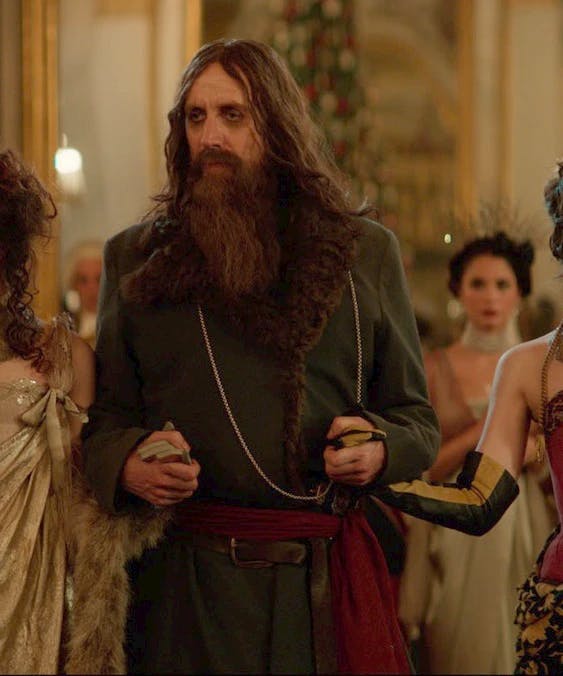
The King’s Man’s portrayal of Rasputin is vile. Rasputin reeks of evil, delighting in violence both physical and sexual. He uses religion to create a cult of personality and control the lives of those around him. He’s also just a disgusting human with the look of a half-dead man who sold his soul to the devil.
But was Rasputin really as bad as The King’s Man makes it seem?
The short answer is I wouldn’t be surprised if the man had sold his soul to the devil. The long answer is a story of religious abuse, lots of death, and the demise of Imperial Russia.
Early Life
Born in 1869, Grigori Rasputin lived as a peasant in a small village for most of his childhood. Other than that, we know nothing else about his childhood. There is some archival evidence that suggests Rasputin was an unruly teen – he may have been charged with drinking and petty theft. But, there’s no indication in the limited records that would suggest Rasputin’s infamous future.
When he came of age, Rasputin married Praskovya Dubrovina. They had seven children though only three survived to adulthood. While Rasputin would go on to develop a reputation as quite the sexual deviant, his wife remained faithful to him until his death.
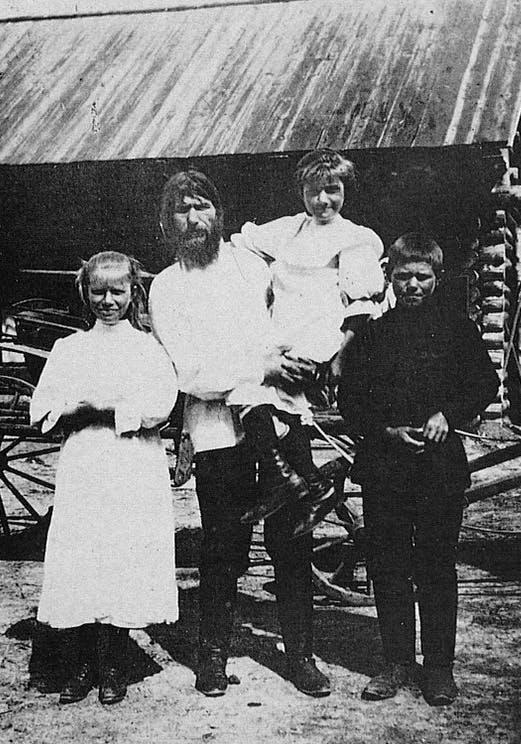
Rasputin with his three children, via Wikimedia Commons.
Religious Conversion
After about 10 years of marriage to Praskovya, Rasputin left his village for a pilgrimage. The reason for this is unclear. Some say it was because he had renewed his childhood interest in religion. Others say it was to escape punishment for stealing a horse.
Whatever his reason for leaving, Rasputin came back to town a changed man. He looked disheveled, became a vegan, swore off alcohol, and developed a cult following. He spent multiple months away from home going on pilgrimage to holy sites.
When in his home village, Rasputin prayed and worshiped with his followers. His gatherings for worship caused quite the stir among villagers as there were reports that his young female followers were bathing him before the services. Rumors flew that Rasputin had joined the Khlysty, a religious sect whose strange rituals included sexual orgies and self-flagellation.
There is no historical evidence that Rasputin ever joined the Khlysty. But, given his proclivity for strange religious rituals, Rasputin joining the Khlysty wouldn’t have surprised anyone.
Becoming the Tsarina’s Right-Hand Man
Rasputin rose to prominence as a holy man who could help with anxieties. Despite the fact that he was sleeping with his female followers (yes, he was still married), he gained notoriety among the leaders in the Eastern Orthodox Church. Soon, his friends in church leadership introduced him into St. Petersburg high society.
High society in St. Petersburg had become increasingly fascinated with the mystical side of the Russian Orthodox religion. The “black princesses,” Militsa and Anastasia of Montenegro, became enamored with Rasputin and his mystical ways, introducing him to Tsar Nicholas II of Russia and Tsarina Alexandra in 1905.
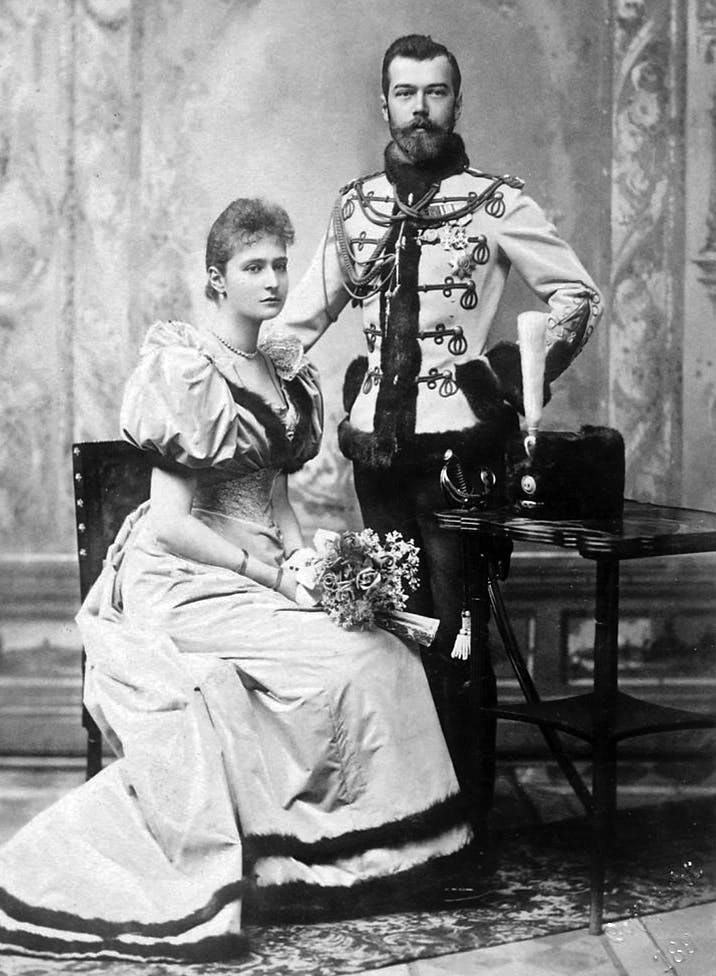
And the rest, they say, is history. That introduction of Rasputin to the Tsar and Tsarina altered the course of world events. While Rasputin isn’t solely responsible for the royal family’s fall from grace, he sure did a good job of helping it along.
The King’s Man suggests that Rasputin had the Tsar and Tsarina hooked on opium. In the movie, Nicholas and Alexandra kneel at Rasputin’s feet as he feeds them opium from the cross around his neck. It’s a stunning visual that represents the Russian royals' delusional devotion to the holy man, and it would explain a lot about Alexandra’s obsession with Rasputin despite the counsel of her contemporaries. But there’s no historical evidence that Rasputin controlled a puppet government in Imperial Russia with a little help from drug addiction.
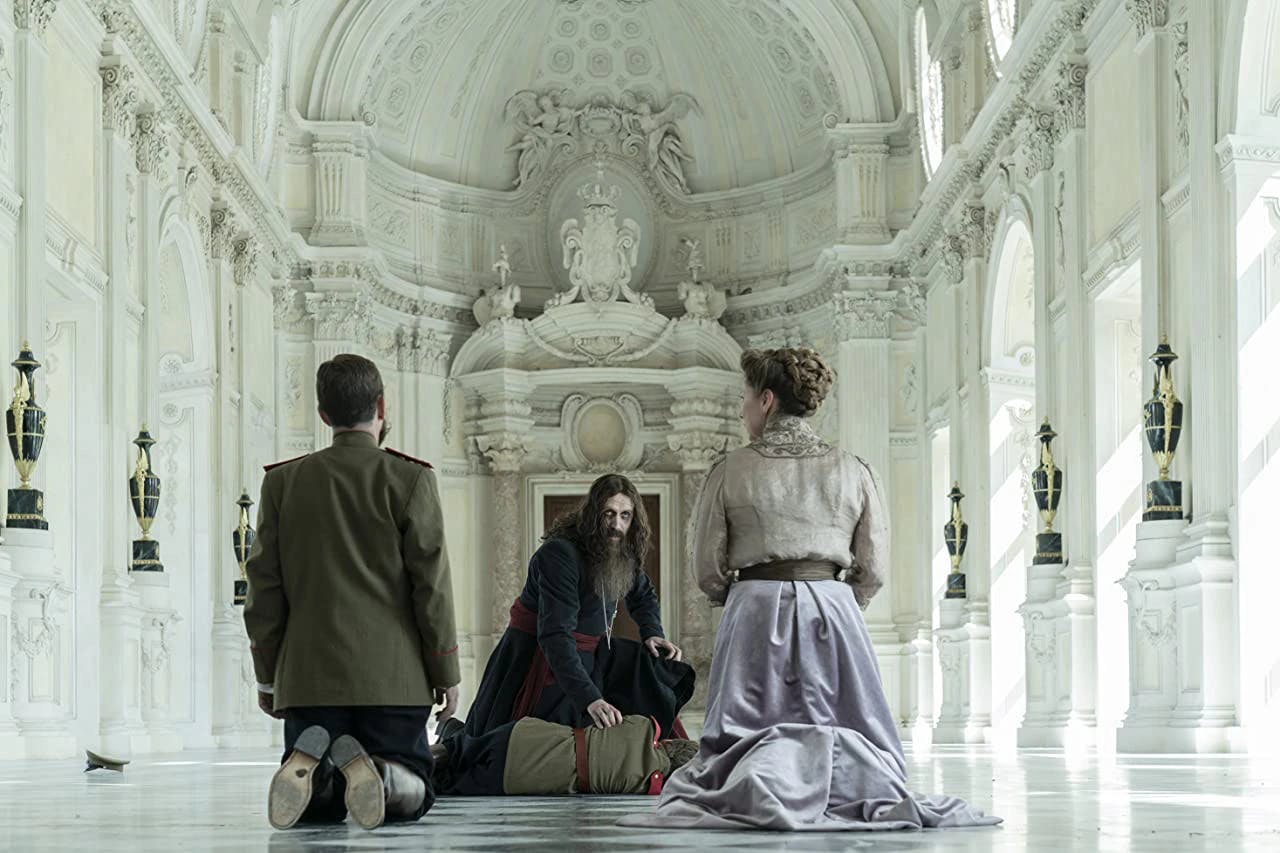
Rather, Nicholas and Alexandra’s devotion came from the belief that Rasputin could heal their only son, Alexei. Alexei suffered from hemophilia, a genetic bleeding disease in which the blood does not clot properly. Alexandra carried the gene for hemophilia and passed it down to her son. She felt immense guilt for passing the disease to her child. This caused her to look anywhere and everywhere for a cure for Alexei. When Russian doctors couldn’t cure him, she turned to mystics and religious healers.
Alexandra became a believer in Rasputin’s power after he “healed” Alexei numerous times. The nail in the coffin was when Alexei hemorrhaged for days on end. Doctors could do nothing. And Alexandra sat next to the Tsarevich’s bedside for days with hardly any food or rest. When she finally got word to Rasputin, he told her: “God has seen your tears and heard your prayers. Do not grieve. The Little One will not die. Do not allow the doctors to bother him too much."
Alexei miraculously survived.
At first, Tsar Nicholas did not understand Alexandra’s obsession with Rasputin. But once it appeared that Rasputin had saved his son, he could not banish him from the court for fear of angering Alexandra, and the Tsar started to believe in Rasputin’s powers as well.
How Alexei survived, we don’t know, but Rasputin didn’t have any healing powers. One theory is that he regulated Alexei’s hemophilia via aspirin. Aspirin was used as a pain reliever at the time, but its blood-thinning properties were not fully known until the 1950s.
Rasputin’s Death
Rasputin’s death scene in The King’s Man is wildly inaccurate in its storyline. But there are kernels of truth mixed in.
When in Russia, the Duke of Oxford, Shola, and crew attempt to kill Rasputin with a cyanide-laced dessert. The cyanide does nothing to the holy man. As a result, the crew is forced into a ridiculous dance-like battle with Rasputin. Rasputin survives the cyanide, stab wounds, and drowning until he is finally felled with a single bullet.
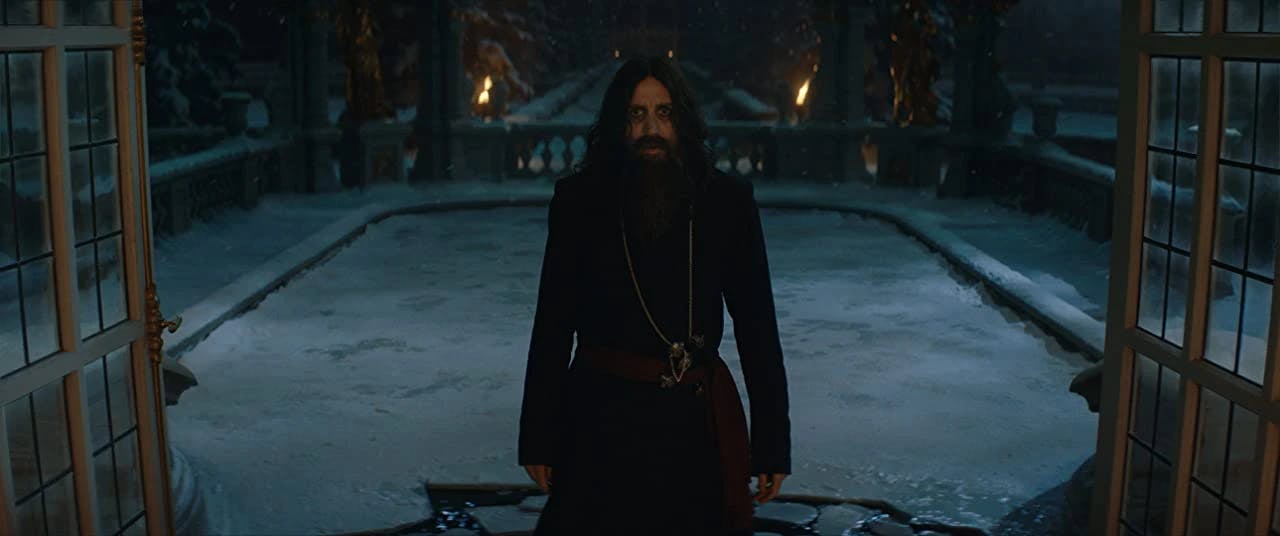
The real Rasputin died on December 30, 1916. He was killed by a group of Russian nobles who decided his influence had gotten out of hand. But, those nobles had to put in the work to kill him. Rasputin was first served tea and cakes laced with cyanide. To their surprise, the cyanide did nothing to affect the holy man.
Then, Rasputin asked for wine. He drank three glasses. The wine was also poisoned.
Rasputin, somehow, stayed alive.
Fed up, Prince Felix Yusupov shot Rasputin point blank in the chest.
Again, Rasputin, somehow, stayed alive.
After some time, Yusopov came to check if Rasputin was dead. The holy man leapt up and attacked him, following him up the stairs from the basement where he was shot, through the house, and into the courtyard.
Rasputin was finally killed by a gunshot wound to the head.
So What Actually Happened?
Because of the secrecy surrounding Rasputin’s work at the palace, we’ll never know the full truth about him. Alexandra and Nicholas kept Alexei’s condition a secret to avoid the political instability of having a fragile heir. Not even members of the royal household knew the extent of the Tsarevich’s condition. Furthermore, Alexandra was known to vehemently defend the holy man if she caught even a whiff of negative gossip.
The fact remains that Rasputin’s reputation was far from rosy among everyone other than the Tsar and Tsarina. Rasputin ascribed to a peculiar view that to overcome sin one must experience it first. He would use this to manipulate young women into doing various sexual acts with him. He’s said to have had an affair with the Tsarina (something he claimed), and it’s also posited that he sexually assaulted the young Romanov princesses. He was incredibly vulgar, exposing himself in public often. He exploited his power to manipulate and control those around him.
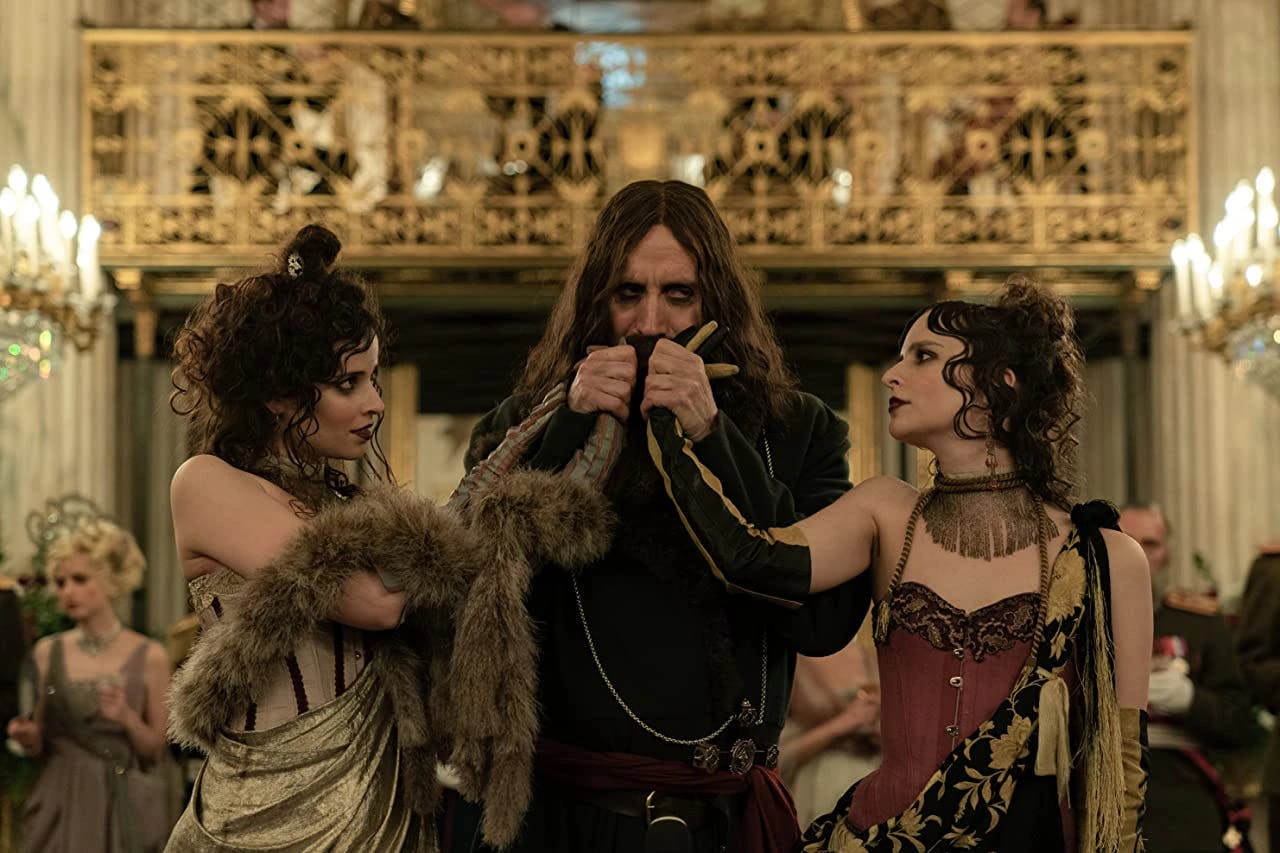
The Russian people saw him as a demon controlling the minds of Alexandra and, eventually, Nicholas. Their dependence on Rasputin severely damaged the credibility of the royal family leading up to the Bolshevik Revolution.
Closing Thoughts
The King’s Man paints a caricature of Grigori Rasputin. But much of it is rooted in fact. What historians can or cannot confirm is not because of the impossibility of the rumors, but the lack of information available about the actions of Rasputin.
Whatever the historical discrepancies, one can be sure that Grigori Rasputin used his power and influence to severely damage Imperial Russia. He manipulated and controlled those closest to him.
He might not have been a crazed dancing man with healing powers like The King’s Man would have you believe, but Rasputin was an evil and vile man. That much we do know.
We want to know what you think about Evie! Take the official Evie reader survey.